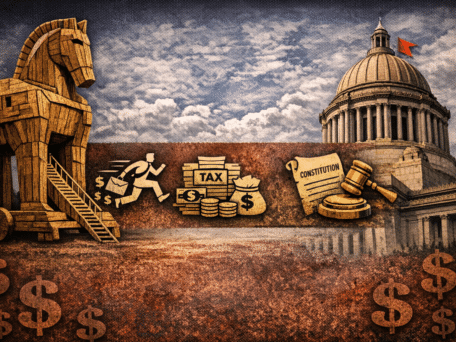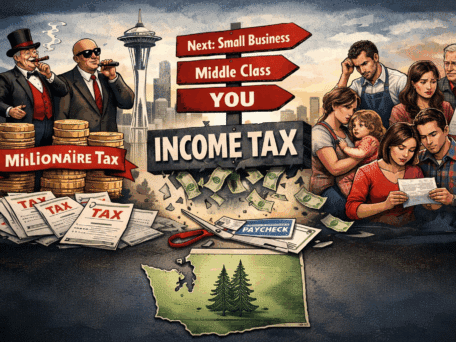Earlier this year, a federal judge ruled against small business owners seeking to temporarily halt part of Seattle’s $15 minimum wage law. As Shift reported, the International Franchise Association (IFA), along with five local franchisees, sought a preliminary injunction to suspend the portion of the $15 minimum wage law that classifies franchises—no matter the size—as big businesses, which places them at a financial disadvantage against other small businesses by putting them on a “faster track toward paying workers $15 an hour.”
Today, a federal appeals court panel will hear arguments from lawyers for local small business franchise owners and the IFA. They will argue that the $15 minimum wage law is discriminatory, with certain small businesses being classified as “large businesses” simply due to franchise affiliations. Most local franchise businesses have a modest number of employees, yet are placed in the same category as businesses with more than 500 employees due to clear discrimination at the hands of the law’s authors in order to meet the political objectives of the labor leaders who provide council members with campaign cash.
There is quite a lot of evidence backing the IFA’s discrimination claims. As Shift reported, Seattle businessman David Meinert, a member of Mayor Ed Murray’s Income Inequality Advisory Committee (IIAC) which was charged with developing the $15 minimum wage law, said the following in a sworn statement:
“During the IIAC process, there was discussion about whether the Mayor’s minimum wage bill should treat small franchise businesses as large employers. I had several meetings with David Rolf [President of SEIU Healthcare 775NW and co-chair of IIAC] in which he told me that the purpose behind treating small franchise businesses as large employers under the minimum wage law was “to break the franchise model” and “enable labor unions to organize employees of such businesses.”
Additionally, Seattle billionaire Nick Hanauer, who was also part of Murray’s (IIAC), emailed the following Seattle City Councilmember Tim Burgess:
“I am well aware that the compromise we fashioned classified most franchise owners as Large. This was our intent and I believe that there are very good reasons for this… In the piece that we wrote for the Stranger, Eric Liu and I asserted that we need to rethink the very nature of the capitalism that we want. The truth is that franchises like subway and McDonalds really are not very good for our local economy. They are economically extractive, civically corrosive and culturally dilutive. Can you think of anytime people got excited about the addition of one of these franchises to their neighborhood??? … To be clear, the net amount of food people in Seattle will consume will not change if we have fewer franchises. What will change is what they consume and from whom. A city dominated by independent, locally owned, unique sandwich and hamburger restaurants will be economically, civically and culturally rich than one dominated by extractive national chains. You can’t get more stuff at the Pike Place market than at a Walmart, but nobody ever flew around the world to go visit a Walmart.”
As Shift previously stated, the big take-away from the yet unfolding debacle that is Seattle’s $15 minimum wage law is rather clear. As with all “I’m looking out for the little guy” policies liberal Democrats love to endorse, it’s never really about the little guy. Rather, it’s about a very specific special-interest agenda that works to give an inordinate amount of power to labor unions which, in turn, give lots of money to ensure Democrats keep getting elected. Of course, it’s all at the expense of the little guy.
Perhaps Hanauer should take a look at that kind of “extractive” agenda.




